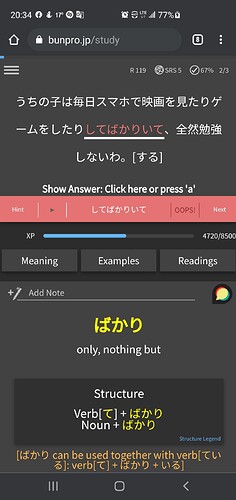English translation:
only
nothing but
Structure:
Verb[ て ] + ばかり
Noun + ばかり
Explanation:
[ばかり can be used together with verb[ている], if so: verb[て] + ばかり + いる is used. for combining sentences ばかりで is used. In case of verb[ている] both ばかりいて and ばかりで can be used.]




